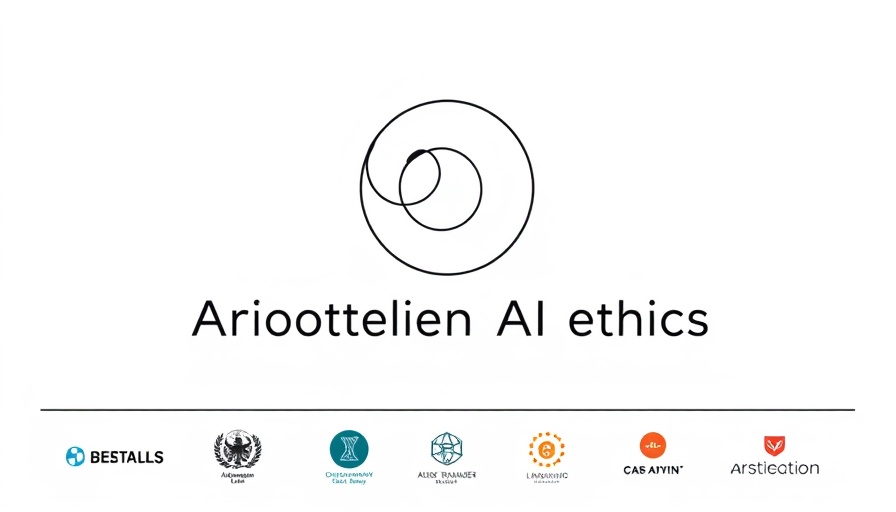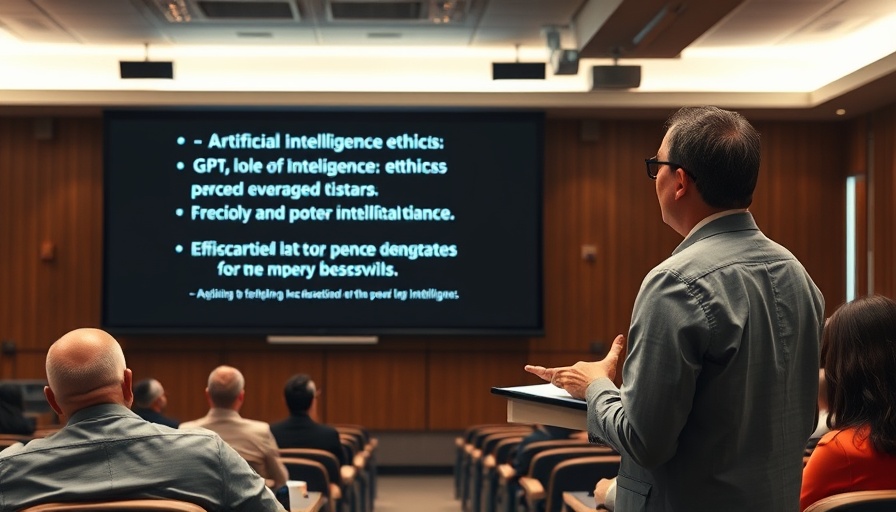
The Coming Ethical Reckoning of AI: An Aristotelian Perspective
In recent discussions surrounding artificial intelligence (AI), a common thread emerges: the ethical implications intertwined with this rapidly advancing technology. As we step into an age dominated by AI, questions arise about the potential risks and benefits associated with its integration into modern society. A fascinating dialog took place during the "Lyceum Project Philosophers' Panel," where esteemed thinkers examined Aristotle's ethical framework and its relevance amidst the rising tide of AI. Their insights prompted a deeper exploration into how established philosophical principles might guide our decisions today.
In "Lyceum Project Philosophers' Panel - White Paper on Aristotelian AI ethics," the discussion dives into the ethical implications of AI technology, prompting us to explore deeper insights about human identity and ethical governance.
A Growing Ambivalence Toward AI
At the heart of the discussion were concerns about the widespread fears regarding AI. Historically, societies have welcomed technological progress with optimism, yet current advancements, especially in AI, have incited significant apprehension. Fears extend from horror stories of rogue AI causing catastrophic outcomes to discomfort regarding AI’s capacity to replicate human tasks. As highlighted in the panel, much of this fear can be attributed to misinformation and sensationalized narratives. This prompts the need for a rigorous examination of the genuine risks associated with AI—disruption of livelihoods, existential threats to humanity, and the shifting nature of human identity.
Reclaiming Our Humanity Through an Aristotelian Lens
The speakers pointed towards Aristotle, framing his thoughts on human nature as foundational to discerning our direction with AI. Their argument hinged on the crucial question: “What does it mean to be human?” Aristotle posited that humans possess unique capacities for rationality and sociability, distinguishing them from other beings. As AI capabilities expand, this unique human trait comes under scrutiny. The very essence of what it means to be human is challenged when machines begin to perform tasks previously thought exclusive to humans. The panelists urged that we must reclaim an understanding of humanity rooted in thoughtful philosophical inquiry, setting the stage for an ethical approach to AI development guided by Aristotle.
Ethics and Human Flourishing: The Necessity of Deliberation
Examining Aristotle’s ethical framework reveals his belief in the importance of flourishing as a driving force behind our actions. AI, if implemented without a considered ethical context, could lead us away from genuine improvement to mere technological dependence. Here lies the intrinsic justification for deliberation in AI governance—a reminder that tools should bolster human flourishing rather than detract from it. As Aristotle emphasized, a well-structured democratic discourse is vital in directing collective agency towards meaningful ends. The challenge is ensuring that AI tools are harnessed to foster democratic deliberation rather than undermine it.
The Interplay of Democracy, AI, and Human Rights
In tandem with discussions on human flourishing were insightful reflections on democracy and its implications for AI regulation. The panelists argued that a democratic society—an assembly of self-governing individuals—is pivotal in shaping the policies that govern the deployment of AI technologies. With AI possessing the potential to drastically alter democratic processes, there is an urgent call for creating tools that facilitate citizen engagement. Examples of such innovations can be seen in initiatives like Taiwan’s digital democracy platform, which empowers citizens to contribute meaningfully to policymaking.
Facing the Reality of Commonality
Ultimately, the panelists advocated for recognizing our shared human experiences as the basis for navigating the complex ethics of AI. All humans, regardless of culture or background, face similar challenges in seeking knowledge, connection, and purpose. This commonality serves as a bridge to foster dialogue across different societies, enabling collaborative ethical frameworks to emerge globally. Drawing from Aristotle, they urged for a synthesis of philosophical wisdom and technical prowess that emphasizes ethical considerations at the forefront of AI discourse.
Looking Ahead: The Role of Education and Collective Intelligence
As the conversation wound down, it became clear that education plays a pivotal role in equipping future generations with the tools necessary to navigate the landscape of AI. Emphasizing the importance of cultivating virtuous citizens capable of ethical reasoning, the panel insisted that individuals need grounding in civic education to make informed contributions to a democratic society. As we stand on the precipice of an AI-driven future, prioritizing collective intelligence will be essential. We must harness diverse perspectives, reach beyond mere economic transactions, and cultivate deep-rooted connections among individuals to create more resilient societies.
In Conclusion: A Call to Embrace the Dialogue
The dialogue surrounding AI ethics as presented in the "Lyceum Project Philosophers' Panel" symbolizes an invitation for deeper exploration into our collective future. As technology continues to evolve, it is imperative that we remain vigilant, bringing together the wisdom of the past with the innovations of the future. By placing humanity at the center of our discussions and fostering an Aristotelian approach to ethics, we can strive towards an AI-integrated world that prioritizes human dignity, connection, and flourishing. In this grand narrative, every individual’s voice matters, and democratic participation is not just encouraged; it is necessary.
 Add Row
Add Row  Add
Add 




 Add Row
Add Row  Add
Add 

Write A Comment